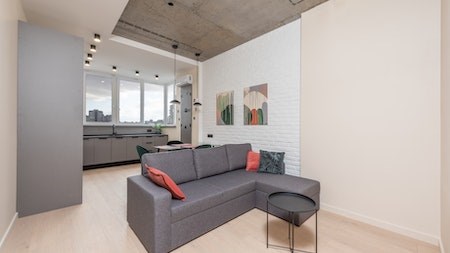In the latter part of 2022, headlines began to emerge warning of an increase in the hijacking of residential properties, occupied or vacant! Initiated by organised syndicates, who forcibly evict tenants or owners, they are, in effect, challenging the law, which has been described as outdated and impractical.
When this happens, the property owner engages the Prevention of Illegal Eviction from and Unlawful Occupation of Land Act (aka the PIE Act) to evict the unlawful occupiers, which is a long and tedious process, often taking years with a possibility of incurring expensive legal costs. Worse is that during this time, the owner remains responsible for rates and taxes, and utility services.
These syndicates have realised the benefits of gaining an income from tenants that they place on the property and often use it as a base for criminal activities. They have no interest in the property’s value or its maintenance. When it serves no further value, or they are finally evicted, the owner also has to deal with the decimation of the property. This often includes loss of fixtures because the syndicates generally rip out anything of value, such as possessions, the geyser, pool pumps, walling, copper piping, doors, appliance fixtures, and even the electrical wiring and switch mechanisms.
All properties are vulnerable
No home is protected from these syndicates, regardless of the security in place. Occupations often occur during times when the owner/occupier is on holiday or absent from the home for some time. There have been cases where illegal occupations have even occurred in estates. These syndicates have been operating for some years in the Pretoria and Johannesburg CBD areas, but there are cases on the rise where even affluent suburbs like Sandton have been targeted, and the move to these affluent suburbs is alarming.
The reason? Poverty is cited as one and unemployment, but mostly it’s because the state law and the South African Police Service (SAPS) are not able to adequately address the issue. The SAPS has a mandate in terms of the constitution in Section 205(3) to prevent, combat and investigate crime, to maintain public order, to protect and secure inhabitants of the country and their property, and to uphold and enforce the law.
However, even when homeowners request assistance to remove home invaders, it has to be clarified whether these persons are trespassers or “unlawful occupiers”, as defined by the Pie Act. This ironically informs the court to consider the rights of occupiers if those include the elderly, children, disabled persons and women-headed households, as well as consideration being given to finding alternative accommodation for those being evicted. In effect, this means the PIE affords some protection to unlawful occupiers.
Legal process to follow
The property owner often has no choice but to obtain a court order for eviction. And if the eviction is opposed, which according to some commentators, is common in the case of organised syndicates, the legal costs to the property owner creep close to R1-million, and this is unlikely to be recovered. Even if the court mandates that the costs of legal action should be the responsibility of the illegal occupants, recovery of those costs is rarely successful. Swift action allows the SAPS to apprehend trespassers.
In the meantime, there is a new Bill in development, referred to as the Unlawful Entering of Premises Bill. When it does pass, this bill means the SAPS will be better able to deal with individuals who unlawfully enter private property and may make arrests and remove unlawful occupiers.
Prevention better than cure
Taking preventative measures is crucial, including ensuring that secure access control measures are installed across the property. These include perimeter fencing/walls, security alarms and cameras - particularly those that can be accessed from smart devices. Some of these smart Apps also trigger an alarm when movement is detected, allowing time for a security company or the police to immediately swoop in and intervene if, indeed, the intruder/s are intent on illegal occupation.
Property owners are advised not to leave their homes unattended and to engage the services of a house sitter to ensure the property is occupied. The alternative is to have neighbours or a trusted individual check on the property regularly, turning lights on and off, suggesting that the property is occupied. It is also essential to consider the vulnerability of the house sitter, for they can also be easy targets for those intent on the illegal occupation. Syndicates usually have a ‘watcher’, someone who identifies a property target and examines the vulnerability of occupants.
Dogs are also targeted because of the noise factor. Your pets may be poisoned to ensure that they do not alert neighbours to the illegal occupation. Occupying the property may also be gradual; it may appear there is a tenant or a house sitter, and before you know it, there are a number of new occupants, vehicles, and increasing dodgy activities and noise levels.
Act quickly
It is also recommended that the property owner must act timeously if suspicious of an illegal occupation manoeuvre and if able to prove that you did everything in your power to engage the assistance of the authorities, including an urgent application under the PIE Act. Then, the possibility exists that the property can be returned to the owner quickly, with the least amount of damage.
Writer : Kerry Dimmer




